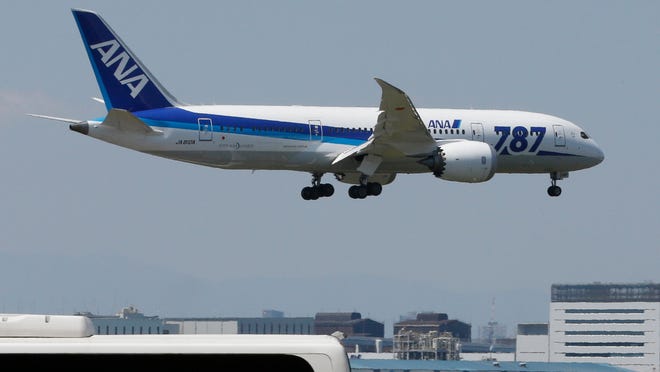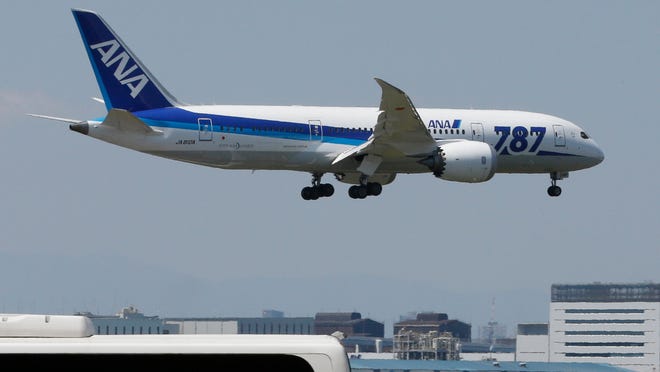Federal safety officials are directing operators of some Boeing planes to adopt extra procedures when landing on wet or snowy runways near impending 5G service because, they say, interference from the wireless networks could mean that the planes need more room to land.
The Federal Aviation Administration said Friday that interference could delay systems like thrust reversers on Boeing 787s from kicking in, leaving only the brakes to slow the plane.
That “could prevent an aircraft from stopping on the runway,” the FAA said.
Similar orders could be issued in the coming days for other planes. The FAA has asked Boeing and Airbus for information about many models. Boeing said it is working with its suppliers, airlines, telecom companies and regulators “to ensure that every commercial airplane model can safely and confidently operate when 5G is implemented in the United States.”

► 5G deployment:How 5G could make a mess of your next flight
FAA still studying 5G impact
The order for the Boeing jets comes a day after the FAA began issuing restrictions that airlines and other aircraft operators will face at many airports when AT&T and Verizon launch new, faster 5G wireless service Wednesday.
The agency is still studying whether those wireless networks will interfere with altimeters, which measure an aircraft’s height above the ground. Data from altimeters is used to help pilots land when visibility is poor.
The devices operate on a portion of the radio spectrum that is close to…



























































